Edwin's Place HDFC
A Mix of Affordable Rental Housing for Low-Income Working Families
and Permanent Supportive Rental Housing for Special Needs Homeless
Families, Single Adults and Veterans
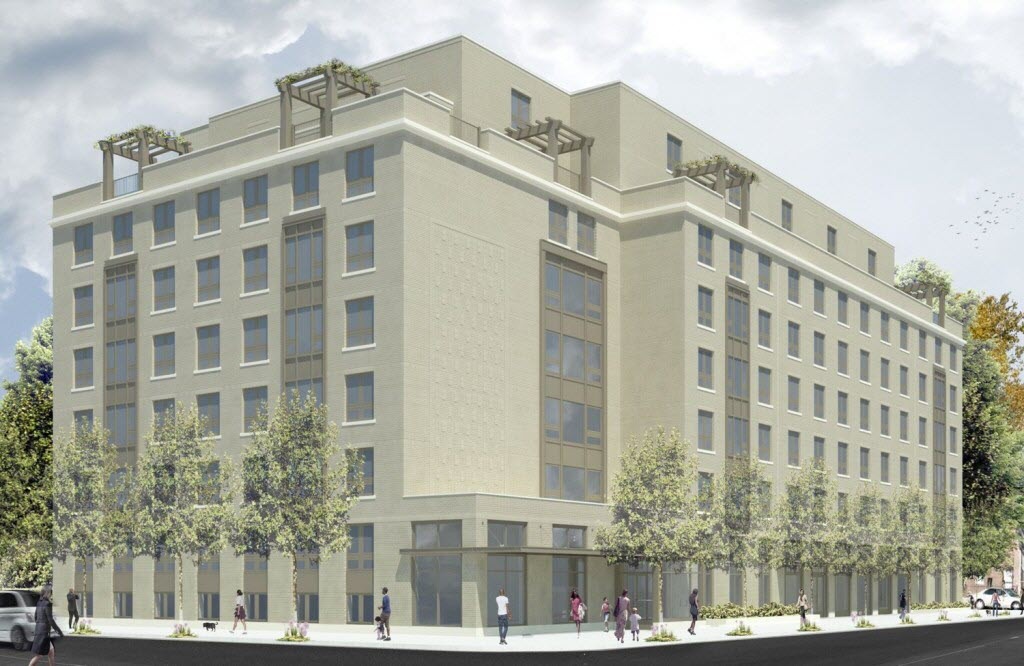
Opened in 2021, Edwin’s Place provides 126 independent living apartments for formerly homeless adults and low-income working families, through a mix of affordable and supportive rental housing paired with comprehensive services and programs.
The Goal of Edwin’s Place
The goal of Edwin’s Place is to meet the immediate and long term housing needs of low-income working families and single adults from the underserved neighborhood of Brownsville/East New York, as well as the housing needs of special needs homeless families and single adult New Yorkers living with HIV/AIDS, mental health disorders, and chronic histories of substance abuse who seek affordable, permanent supportive housing with onsite daily supportive services. The target population includes formerly homeless Veterans.
Edwin’s Place Mission Statement
- To provide access to clean, safe, permanent supportive housing for formerly homeless single adults regardless of their race, socio-economic status, or sexual orientation.
- To provide clean, safe, affordable rental housing to single adults and families.
- To ensure that each special-need tenant remains connected to treatment and obtains the best possible health outcomes, as needed.
- To provide direct and indirect services in a supportive environment.
- To empower our tenants physically, emotionally, and socially.
Additionally, Edwin’s Place seeks to facilitate independence, dignity, and well-being through a complement of safe, affordable housing and day-to-day services provided to the tenants of the supportive housing units.
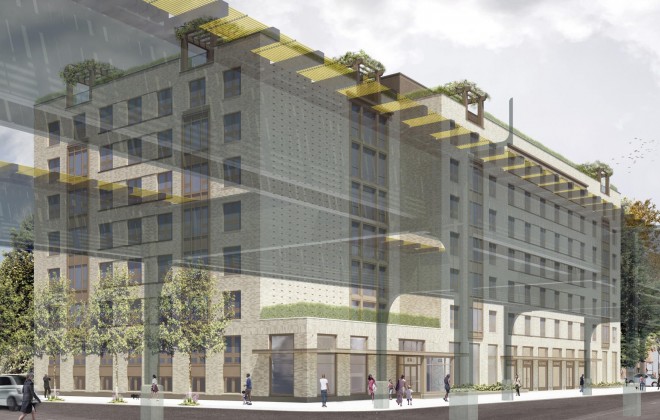
Edwin’s Place – Architect’s Rendering
![]()
Unit Breakdown
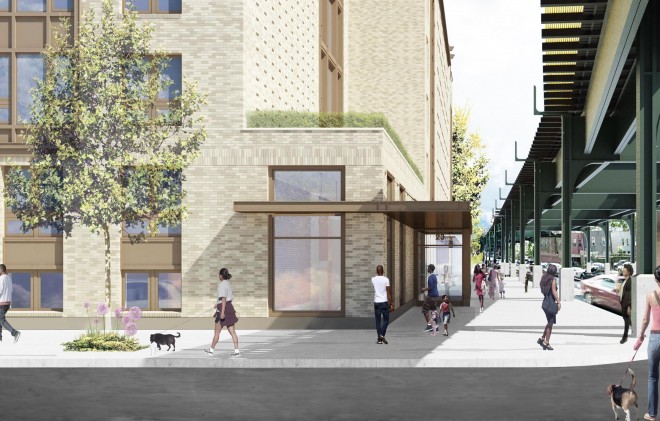
Seventy-eight (78) independent living units are set aside for low income working single adults and families from the community.
Forty-eight (48) independent living units are set aside for special needs and/or formerly homeless single adults and families in which the head of household is recovering from substance abuse, has been diagnosed with the mental health disorder, and/or is living with HIV/AIDS.
The following chart illustrates the unit distribution:
| Unit Type | Supportive | Affordable | Supers Unit | Total |
| Studio | 55 | 1 | 56 | |
| 1 Bedroom | 1 | 33 | 1 | 35 |
| 2 Bedroom | 15 | 11 | 26 | |
| 3 Bedroom | 7 | 2 | 9 | |
| 78 | 47 | 1 | 126 |
![]()
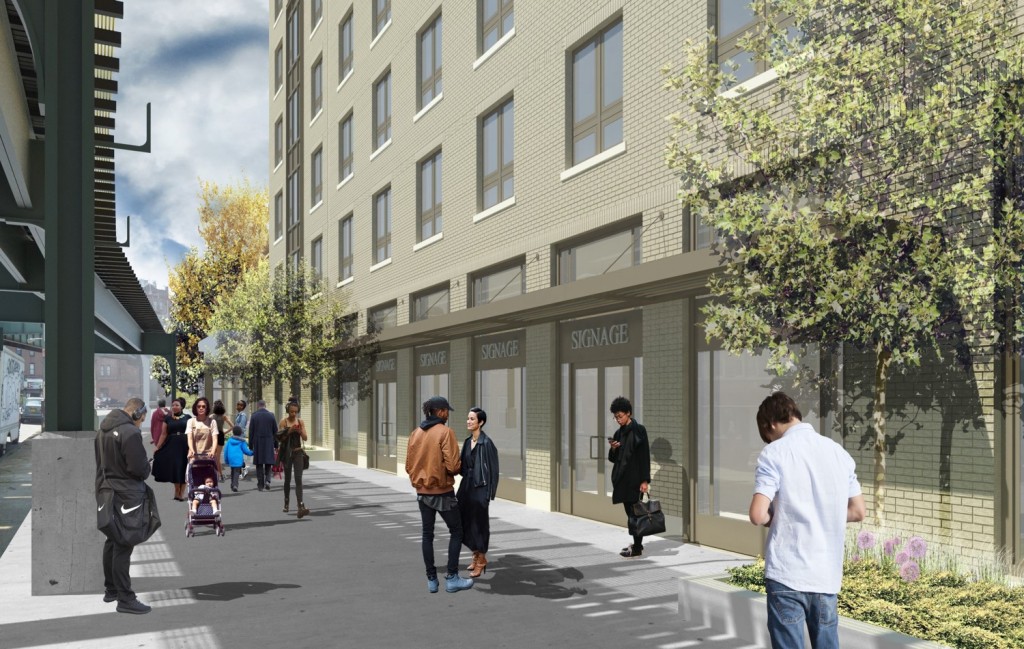
![]()
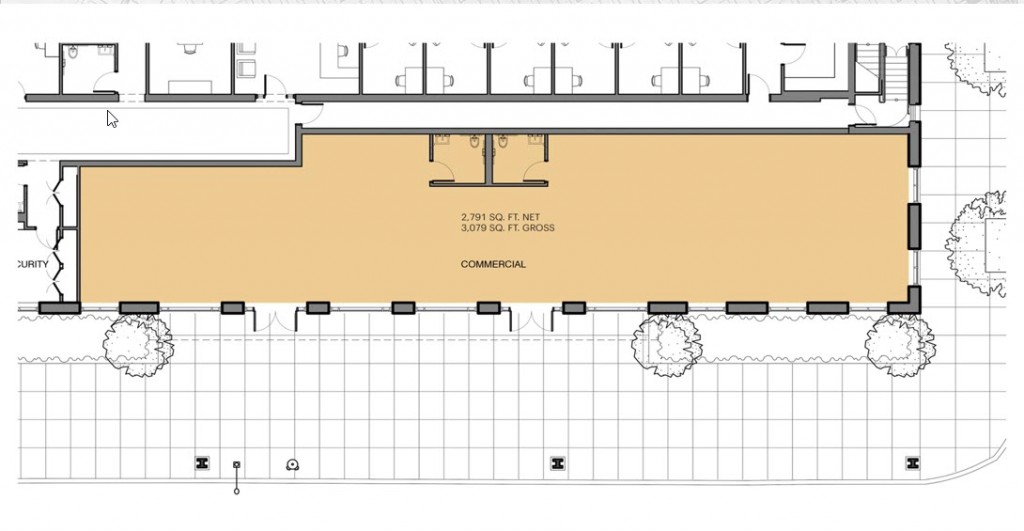
Who Edwin’s Place Serves
Low-Income Working Single Adults & Families
Critical to the success of AAPCI’s housing management model is our commitment to inclusive, mixed-income communities. Rather than being marginalized in quasi-institutional settings, our formerly homeless tenants live alongside a diverse group of low-income professionals. In addition to making it possible for formerly homeless and other vulnerable individuals to stabilize themselves in permanent housing, the affordability, security, and prime location of AAPCI’s housing enables our tenants to contribute to the unique character of New York City. Some are young people newly embarking on an independent life, while others are winding down their careers or cutting down on expenses after retirement.
![]()
HIV and AIDS
The high cost of health care and life-saving medications for people living with HIV/AIDS and homelessness often forces individuals with the illness to have to choose between their health and housing. In addition, persons living with HIV/AIDS are more likely to lose their jobs due to discrimination or as a result of frequent health-related absences. Up to half of all HIV positive individuals are thus at risk of becoming homeless.
Special housing subsidies enable individuals living with HIV/AIDS to access permanent supportive housing and associated services. With the stability of a secure home, Edwin’s Place tenants are able to access essential medications, manage their condition with regular preventive care, and address psychological issues that may contribute to the course of their disease.
While AIDS remains a formidable foe and continues to disproportionately impact people of color (over 80% of NYC’s new HIV cases are among African-Americans, Latinos and Asian/Pacific Islanders), advances in drug therapies have turned AIDS into a chronic, manageable disease. And Edwin’s Place provides the stability and services to aid people living with HIV/AIDS to live healthy, live long, and live with dignity.
![]()
Mental Health & Substance Abuse
The movement in the 1970s to deinstitutionalize psychiatric patients had the unintended consequence of leaving scores of individuals with mental illnesses without access to appropriate care or supports. As a result, many became homeless.
Of the estimated 744,000 people who are homeless on any given night across the United States, nearly half of them have a serious mental illness, such as clinical depression, schizophrenia, bipolar disorders, personality disorders, and substance abuse.
Most of the mentally ill homeless go untreated, and unable to work, and many living on the streets. They also frequently cycle in and out of medical and psychiatric hospitals, drug rehabilitation programs, and prisons and jails, at enormous personal and public costs.
Edwin’s Place seeks to offer a life-enriching alternative to both institutionalization and life on the streets. Tenants will be offered the opportunity to manage their illness while living independently in the housing, with the support of on-site case managers and links to appropriate care.
![]()
Veterans
AAPCI assists several special needs segments of the chronically homeless population in New York City, and regrettably, these include a significant number of military veterans. We serve veterans in all program areas, from transitional to permanent supportive housing.
![]()
Edwin's Place HDFC Submenu
Hotline Phone Numbers
National Domestic Violence Hotline
1-800-799-SAFE (7233)
1-800-787-3224 (TTY)
National Teen Dating Abuse Helpline
1-866-331-9474
1-866-331-8453 (TTY)
In New York City ONLY
Domestic Violence Hotline: 1-800-621-HOPE (4673)
Crime Victims Hotline: 1-866-689-HELP (4357)
Rape & Sexual Assault Hotline: 1-212-227-3000
TDD phone number for all hotlines: 1-866-604-5350
Volunteer Adult Literacy Tutor
Become a volunteer tutor in reading, writing, G.E.D. Prep, or English as a Second Language (ESL).
Call the Literacy Partners at 646-237-0120 or visit the Adult Literacy Tutor program, or Literacy Partners. Help change lives and make New York City one of the country’s most literate cities.

